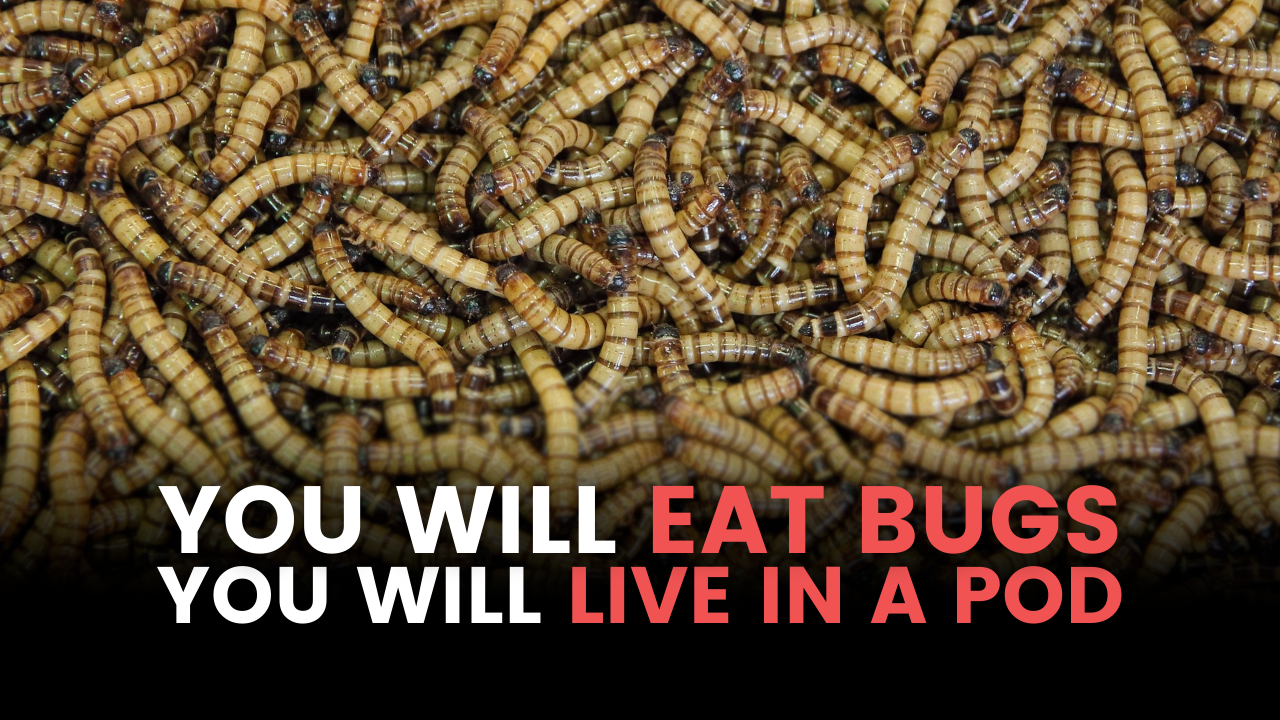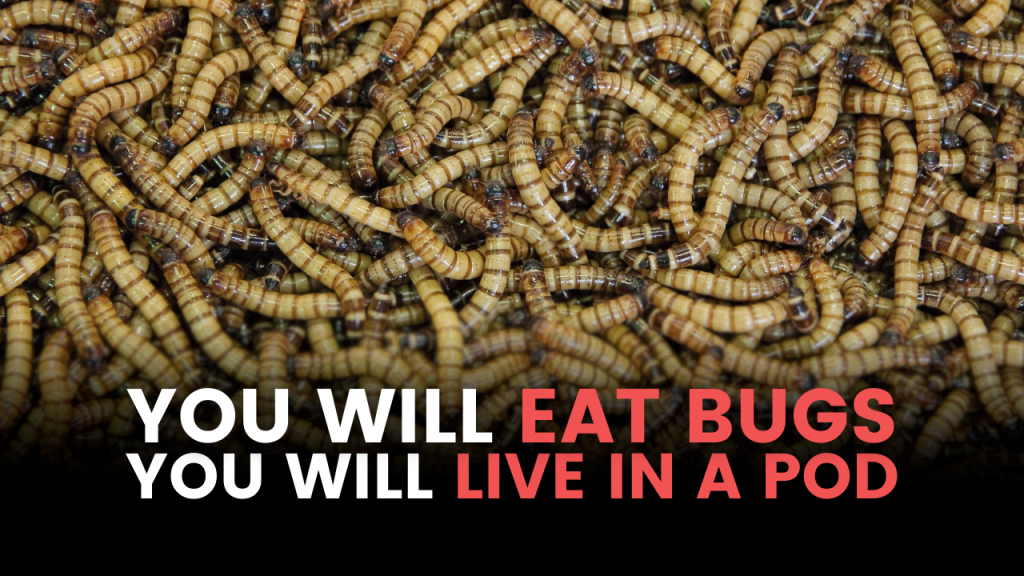
In late 2021, the EU finally approved globalists’ fever dream of watching Europeans degrade themselves by eating bugs and maggots.
While mealworms were the first insects officially recognized as food for human cattle back in May 2021, the new laws make way for house crickets and grasshoppers to be consumed from the ever-growing bug platter of organisms that used to be given to pet lizards as a snack.
The European Union’s landmark decision to approve insects for human consumption was a victory for maggots and people everywhere.
It paves the way for an alternative protein source that should play a critical role in feeding a hotter, more populous world https://t.co/gYy24njjhQ
— Bloomberg Opinion (@bopinion) December 29, 2021
“The EU approval of the yellow mealworm as a novel food was a huge step forward for the industry,” said Eric Archambeau, co-founder of agri-food tech investor firm Astanor Ventures, in May.
“It shows the superior nutritional value of the mealworm and opens the doors towards further approvals. The approval only concerns the whole insect at the moment, but it paves the way for approval of more products such as defatted insect protein, which represents a huge market for insect-derived products.”
As the Brussel Times reported earlier this month, mealworms are now “available as a snack or as powder that can be used for making biscuits, smoothies or pasta products…” Yum.
Clearly, the financial elite of our world is giddy over the development, having promoted the meat supplement for over a decade.
According to an article published by Bloomberg on December 17, entitled ‘Why Bugs Must Be a Bigger Part of the Human Food Chain’, “Humans have been consuming edible insects — from crickets and grasshoppers to fire ants and termites — since before the dawn of civilization, and 80% of the world’s population throughout Asia, Africa and Latin America, continues to eat bugs today.”
In other words, because people in third-world countries eat them to survive, it wouldn’t be so bad if we Westerners tried some deep-fried crickets or chocolate-covered maggots.
After all, if it’s good enough for them, it must be good enough for us. Disagree? What are you, a racist?
According to Bloomberg, “In 2020, global investments in insect protein nearly doubled to about $475 million and analysts expect the market to exceed $4.1 billion in the next five years. A recent Rabobank report predicts that the 10,000 metric tons of insects currently farmed per year will soar to 500,000 metric tons annually by 2030.”
In other words, there’s a substantial financial push underway to see the insect diet adopted by Western countries.
However, most Westerners, myself included, recoil in disgust upon seeing insects presented as food.
So how are these financial interests going to convince Westerners to eat bugs? With guilt, of course!
Specifically, to the end of guilting Westerners into eating bugs with climate change and carbon footprint propaganda, the corporate media is churning out article after article promoting insect consumption as not only a strategy for fighting climate change but an absolute necessity.
It’s all in the headlines. Here are just a few:
“How Humans Eating Insects Could Help Save the Planet,” published by Time in February 2021.
“Insect protein has great potential to reduce the carbon footprint of European consumers,” published by ScienceDaily in September 2021.
“To Fight Global Warming, Eat Bugs,” published by Science.
“Why eating insects to combat climate change is inevitable,” published by the South China Morning Post in June 2021.
“How eating insects could help climate change,” published by the BBC way back in 2015.
“If we want to save the planet, the future of food is insects,” published by The Guardian in May 2021.
Now, I’m no ‘conspiracy theorist,’ but I wouldn’t be surprised if there were some sort of financial incentive (i.e., that global goal of creating a $4.1 billion industry) for all these media organizations to run positive press for one of the most disgusting diets ever proposed.
Regardless, the messaging is clear: eat the bugs, or you’re literally killing the planet!












